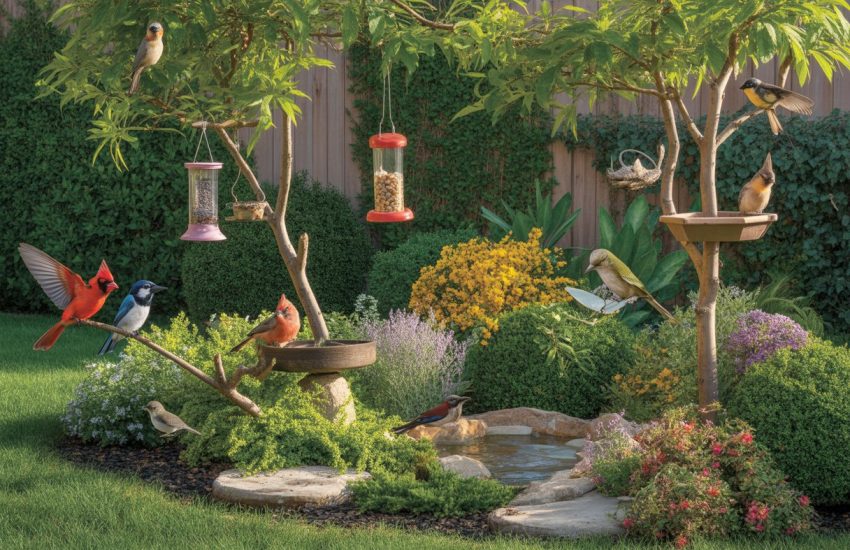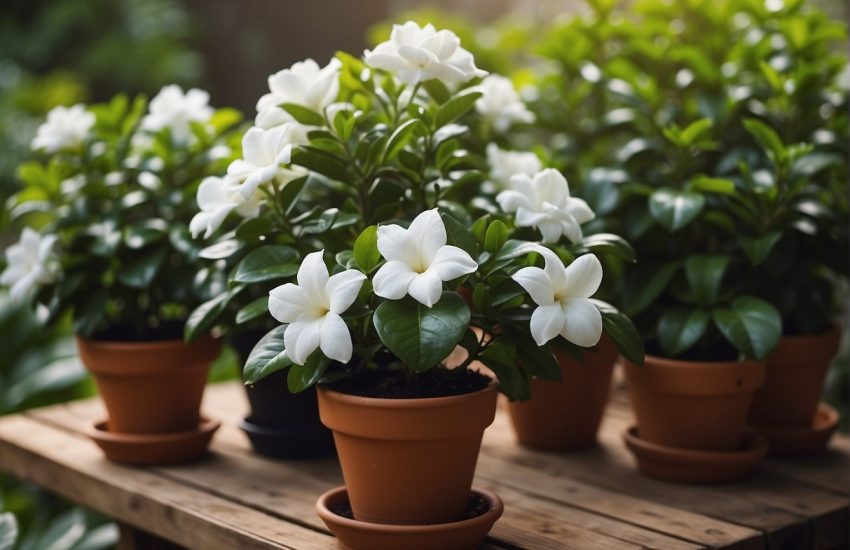Can I Use Outdoor Soil For Indoor Plants [Healthy Tips 2026]
Last updated: February 13, 2026
Gardening is a great way to enjoy the outdoors and grow your fruits, vegetables, and flowers. Any gardener knows that soil is essential for growing healthy plants. Garden soil is nutrient-rich and helps to regulate moisture levels and prevent weed growth. However, garden soil can also be quickly eroded by wind and water, damaging plant life and making it difficult for new seedlings to take root. But what if you don’t have a lot of space for a garden? Can I use outdoor soil for indoor plants?
![Can I Use Outdoor Soil For Indoor Plants [Healthy Tips 2026] - PlantNative.org Can I Use Garden Soil For Indoor Plants](https://plantnative.org/wp-content/uploads/2023/04/can-i-use-garden-soil-for-indoor-plants-1024x580.jpg)
Can I Use Outdoor Soil For Indoor Plants
Outdoor soil can be used for indoor plants, but it may not provide the best growing conditions and may contain pests or diseases. There is a big difference between garden soil and topsoil. Outdoor soil is often heavier and more dense than soil mixes specifically formulated for indoor plants, which can lead to poor drainage and difficulty for the plants to establish roots. It is generally recommended to use a soil mix specifically formulated for indoor plants in order to provide the optimal environment for healthy plant growth. If you do choose to use outdoor soil for indoor plants, it is a good idea to sterilize it first by baking it in the oven or on a tray in the sun to kill any pests or diseases. You can also mix the outdoor soil with equal parts perlite or vermiculite to improve drainage and add a small amount of compost or well-rotted manure to provide nutrients.
The Best Soil for Indoor Plants
Many people don’t realize that there is a big difference between outdoor soil and the best soil for indoor plants. outdoor soil is designed to provide nutrients and support for outdoor plants that are exposed to the elements. Indoor plants, on the other hand, need a completely different type of soil.
Lighter
The best soil for indoor plants is typically lighter and more porous than garden soil. This helps to prevent compacting and allows indoor plants to get the oxygen they need for healthy growth.
Extra Nutrients
In addition, the best soil for indoor plants is usually enriched with extra nutrients to help compensate for the lack of sunlight.
Good drainage
Soil for indoor plants will have good drainage to prevent water logging and root rot. Water must be able to move through the soil mixture quite quickly. Your houseplants are in danger if the soil is retaining a lot of water.
Moisture retention
While good drainage is essential, the best soil for indoor plants will also have some moisture-retention properties. This is because most indoor environments are very dry, and houseplants need to be able to store some water to survive.
Enriched with organic matter
The best soil for indoor plants is also enriched with organic matter. This could be in the form of compost, manure, or other organic amendments. This helps to provide a steady supply of nutrients for your plants and also helps to improve the structure of the soil. As a result, it is important to choose the right type of soil when growing indoor plants. With the right kind of soil, your indoor plants will thrive and add beauty to your home.
How to Make Outdoor (Garden) Soil Suitable
There are a few things you can do to make outdoor soil suitable for indoor plants.
Amend the Soil
The first step is to amend the outdoor soil with some organic matter. This could be in the form of compost, manure, or other amendments. Doing this will help to improve the drainage and aeration of the soil while also adding some extra nutrients.
Let the Soil Sit
Once you’ve amended the garden soil, it’s important to let it sit for a while before using it. This will give the amendments time to break down and improve the structure of the soil.
Test the Soil
It’s always a good idea to test the soil before using it for indoor plants. You can do this by taking a small sample of the soil and putting it in a pot with some water. If the soil drains quickly, it is probably suitable for indoor plants. If the water pools on top of the soil or if the soil take a long time to drain, it is not suitable for indoor plants and you should look for another option. While garden soil can be amended to make it suitable for indoor plants, it is not the ideal option. It is best to use light and porous soil that has been enriched with extra nutrients. You can also use garden soil in pots for indoor plants. This will provide the best environment for your indoor plants to thrive.
Why is Outdoor Soil Bad For Indoor Plants?
Many reasons make bad garden soil for indoor plants.
Critters and bugs
One of the main reasons is that garden soil can contain all sorts of critters and bugs. These could include spiders, ants, and other insects. While some insects can be beneficial for plants, others can cause damage or spread disease.
Weeds
Garden soil can also contain weed seeds. Weeds compete with plants for resources and can quickly take over a garden.
Diseases
Another reason that garden soil is bad for indoor plants is that it can contain diseases. These diseases could be passed on to your plants, causing them to become sick or even die.
Heavy and Dense
Garden soil is also typically very heavy and dense. This will lead to problems with drainage and aeration. The soil will typically be either dry and hard or damp and drenched, neither of which are suited for our indoor plants.
Poor Moisture Balance
Garden soil also lacks a moisture balance since it is unable to retain enough moisture for plants to grow. While most garden soil begins to become dry and hard when left without water for an extended period, most indoor plants require moisture in the soil to grow.
Conclusion
Can I use garden soil for indoor plants? For indoor plants, you have to use soil that is lighter and has balanced nutrients, good drainage, and moisture retention. Garden soil is very dense and has fewer nutrients for your indoor plants. This type of soil is best for outdoor plants. But you can make suitable garden soil for indoor plants. But its best not to use garden soil. Because it also causes many diseases and harmful insects. So, enjoy your indoor gardening safely and happily.
FAQs
Question
What happens if you use outdoor potting soil for indoor plants?
Answer
It is not recommended to use outdoor soil for potted plants since it may not provide the proper drainage and nutrients needed for healthy plant growth. Use potting soil instead.
Question
Can you use outdoor soil for potted plants?
Answer
Yes, indoor potting mix tends to be lighter and more aerated, while outdoor potting mix is heavier and provides more moisture retention. They are formulated for different plant environments.
Question
Is there a difference between indoor and outdoor potting mix?
Answer
Regular garden soil can be used for indoor plants, but it may not provide the best growing conditions and may contain pests or diseases. It is generally recommended to use a soil mix specifically formulated for indoor plants.
Question
Can you use regular garden soil for indoor plants?
Answer
The best soil for indoor house plants is a well-draining, nutrient-rich soil mix specifically formulated for potted plants. Commercial potting mixes are widely available and offer a convenient option, or you can make your own by mixing equal parts perlite or vermiculite, compost or well-rotted manure, and peat moss or coir.


